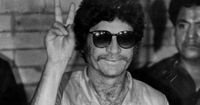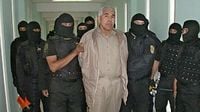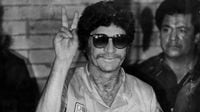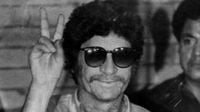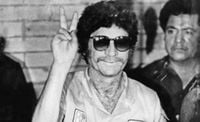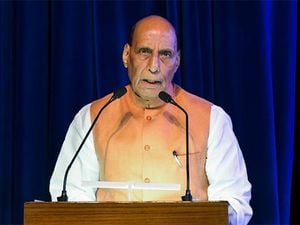Ernesto Fonseca Carrillo, known as "Don Neto", has been released from prison after serving a 40-year sentence for his role in the 1985 murder of DEA agent Enrique "Kiki" Camarena. At 94 years old, Fonseca Carrillo completed his sentence, which included time in house arrest due to health problems.
The release of Don Neto marks a significant moment in the history of drug trafficking in Mexico. His detention in 1985 and subsequent conviction for the kidnapping, torture, and murder of Camarena not only impacted the lives of many but also strained relations between Mexico and the United States. Fonseca Carrillo's health has deteriorated over the years, with issues including colon cancer and vision loss, leading to his transfer to house arrest in 2016.
On April 5, 2025, federal officials confirmed that Don Neto had completed his sentence while under house arrest in Hacienda Valle Escondido, a residential area in Atizapán, State of México. His release comes at a time when other former leaders of the Cártel de Guadalajara are facing their own legal challenges. Rafael Caro Quintero, another co-founder of the cartel, was extradited to the United States on February 27, 2025, while Miguel Ángel Félix Gallardo remains imprisoned in Mexico, with a release date set for 2029.
Don Neto was sentenced in 2015 by the Second Unitary Tribunal of the Third Circuit in Guadalajara, Jalisco, alongside Caro Quintero, for their involvement in the crimes against Camarena and Mexican pilot Alfredo Zavala Avelar. The case gained notoriety due to the brutal nature of the crimes and the subsequent investigation that highlighted the extensive operations of the Cártel de Guadalajara.
In February 1985, Camarena was kidnapped by members of the cartel, who were retaliating against U.S. efforts that resulted in significant drug seizures. His body was discovered a month later, showing signs of torture. This event triggered a major crackdown on drug trafficking by Mexican authorities, with the support of U.S. law enforcement.
Fonseca Carrillo's release has reignited discussions about justice and the ongoing impact of drug trafficking in Mexico. Families of Camarena and Zavala have filed a civil lawsuit in the Federal Court of San Diego, California, seeking damages from Fonseca Carrillo, Caro Quintero, and Félix Gallardo under the Antiterrorism Act of 1992. They accuse the three men of engaging in acts of terrorism due to the nature of the crimes committed against their loved ones.
Despite his age and health issues, Don Neto's release allows him to move freely within Mexico, a right he was granted after completing his sentence. A federal official stated, "On April 5, he completed his sentence, and there was nothing else to fulfill, nor in the states." This statement underscores the legal complexities surrounding his case and the decisions made by various judicial authorities over the years.
In a twist of fate, Don Neto managed to avoid extradition to the United States, a move that was denied by then-Foreign Minister José Antonio Meade in 2015, citing that he had already been tried and sentenced in Mexico for the murder of the DEA agent. This decision has been a point of contention, especially as other cartel leaders face the consequences of their actions in U.S. courts.
As the dust settles on his release, the legacy of Don Neto and the Cártel de Guadalajara continues to loom large in the narrative of drug trafficking in Mexico. His connection to other notorious figures in the drug trade, including his nephew Amado Carrillo Fuentes, known as "El Señor de los Cielos", adds another layer of intrigue to his story.
Born on August 1, 1930, in Badiraguato, Sinaloa, Don Neto's life has been marked by both power and infamy. He was one of the first to establish a significant drug trafficking operation in Mexico, paving the way for future cartels. His arrest on April 7, 1985, was a pivotal moment in the Mexican government's ongoing battle against drug trafficking, leading to his lengthy imprisonment.
In the years following his arrest, Don Neto remained a controversial figure, with many speculating about his influence and connections within the drug trade. Reports suggested that he continued to engage with the criminal underworld even while incarcerated, raising questions about the effectiveness of the justice system in dealing with high-profile criminals.
As he steps back into society, the reactions to Don Neto's release are mixed, with some viewing it as a failure of the judicial system while others see it as a necessary conclusion to a long and complicated saga. The families of Camarena and Zavala, who have fought for justice for decades, are now seeking accountability through their civil lawsuit, hoping to bring some measure of closure to their tragic loss.
In a broader context, the release of Don Neto highlights the ongoing challenges faced by Mexico in combating drug-related violence and corruption. As the country grapples with the legacy of the drug war, figures like Fonseca Carrillo serve as reminders of a tumultuous past that continues to shape the present.
Ultimately, the story of Ernesto Fonseca Carrillo is not just about one man but a reflection of a larger narrative of crime, justice, and the relentless pursuit of power that has defined the drug trade in Mexico for decades.
